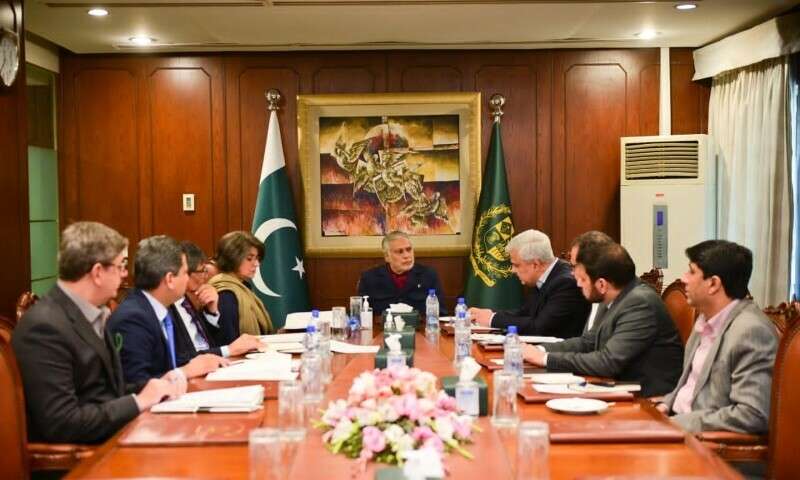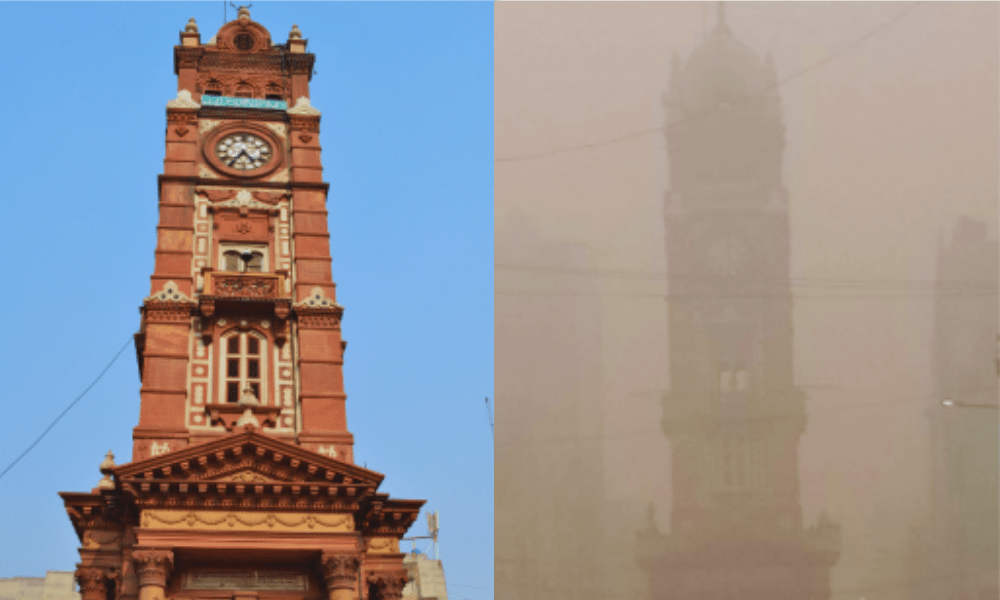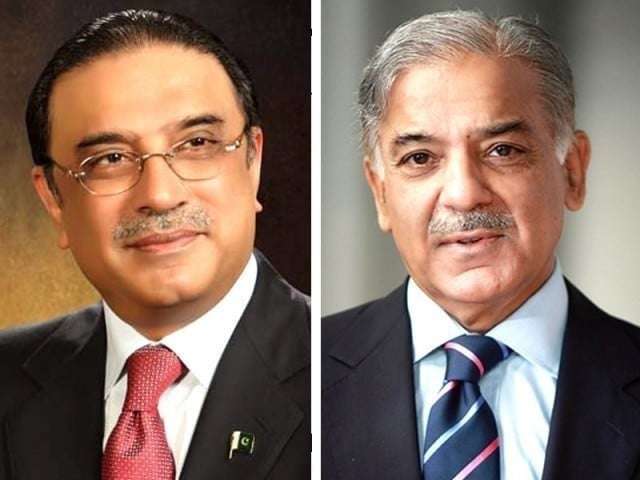Deputy Prime Minister and Foreign Minister Mohammad Ishaq Dar has directed both the foreign and interior ministries to ensure efficient and timely assistance to the Pakistani victims involved in the tragic Moroccan boat disaster. This directive comes as the country grapples with the aftermath of the boat tragedy that took place earlier this month in the Atlantic Ocean, leaving dozens of Pakistani nationals dead or missing.
The Moroccan Boat Tragedy: A Heartbreaking Loss
Details of the Tragic Incident
The tragic incident occurred in the waters between Mauritania and Morocco, with the ill-fated boat carrying 65 Pakistani migrants attempting to cross into Europe. According to reports, 44 out of the 65 individuals aboard the boat either drowned or died as a result of alleged torture during the voyage. As of now, 10 bodies have been recovered, and at least 19 survivors have been rescued from the scene, with some still receiving medical treatment.
The survivors and the deceased are currently located in Dakhla, a small coastal town in Morocco. While the investigation continues, the tragic loss has sent shockwaves across Pakistan, especially in the Sialkot and Mandi Bahauddin districts, from where most of the victims originated.
FM Dar’s Immediate Response
Upon hearing of the incident, FM Ishaq Dar immediately called for a high-level meeting to review the situation and discuss the necessary steps to provide assistance to the victims. The meeting was attended by top officials from the foreign and interior ministries as well as representatives from other relevant agencies.
FM Dar issued clear instructions to the ministries to coordinate with the Moroccan government and ensure that the Pakistani nationals, both survivors and deceased, receive the necessary support and repatriation assistance as quickly as possible. This included arranging for the transportation of the bodies back to Pakistan and providing necessary medical and legal support for the survivors.
Government’s Coordinated Response
Prime Minister’s Decision to Send an Official Team
In a bid to assess the situation and take stock of the response on the ground, Prime Minister Shehbaz Sharif has approved the dispatch of an official team to Morocco. Sources confirmed that the team, which will be led by Federal Investigation Agency (FIA) Additional Director General (north) Munir Maarth, will include key officials such as Salman Chaudhary, the Additional Secretary of the Interior Ministry, as well as representatives from the Foreign Ministry and Intelligence Bureau.
This team will travel to Rabat, the capital of Morocco, and to Dakhla, where the survivors and deceased have been gathered. Their main task will be to assess the situation, gather first-hand information, and compile a detailed report. This report will then be submitted to the Prime Minister, who will use it to shape Pakistan’s official response to the tragedy.
FIA Investigation into Human Trafficking Networks
In addition to diplomatic efforts, Pakistan’s Federal Investigation Agency (FIA) has registered three cases against individuals suspected of human trafficking. These cases have been filed against suspected traffickers in Gujrat and Sialkot, regions that have been identified as key locations for illegal immigration networks. The FIA has set up crime circles in Gujranwala and Gujrat to investigate the illegal operations that led to the tragedy.
FIA officials are working to identify and apprehend the individuals behind the smuggling operations and ensure that justice is served. The agency has made it clear that it will not hesitate to take action against anyone involved in the illegal migration of Pakistani nationals.
Victims’ Home Regions: Sialkot and Mandi Bahauddin
The majority of the victims in this tragedy hail from the Sialkot and Mandi Bahauddin districts in Pakistan’s Punjab province. These areas have long been known for their high rates of illegal migration, with many young men seeking better economic opportunities in Europe.
Unfortunately, the recent tragedy has highlighted the dangers of illegal immigration and the deadly risks involved in such attempts. While these young men dream of a better life abroad, they are often preyed upon by human traffickers who promise quick and easy access to Europe, but instead deliver them into dangerous and life-threatening situations.
Impact on Families and Communities
The tragedy has had a devastating impact on the families and communities in Sialkot and Mandi Bahauddin, where most of the victims were known and loved. The emotional toll on the families, many of whom had no idea that their loved ones were part of the ill-fated journey, is immeasurable.
Local leaders and activists have called for greater efforts to address the root causes of illegal immigration, which often stems from economic hardship, lack of opportunities, and the desire for a better life. There is also growing demand for the government to work with international organizations to provide better support for migrants and to prevent trafficking in the future.
How the Pakistani Government Plans to Help
Immediate Relief for Survivors
FM Dar has emphasized the need for swift action in providing immediate relief to the survivors of the boat tragedy. The survivors, who are currently in Dakhla, require urgent medical attention and psychological support to help them recover from the traumatic experience they have endured.
Pakistani officials in Morocco are coordinating with local authorities to ensure that the survivors receive the care they need and are repatriated safely back to Pakistan as soon as possible. Efforts are also underway to arrange legal documentation and other necessary support for the survivors to help them return home.
Repatriation of Bodies
The repatriation of the bodies of the deceased is a priority for the Pakistani government. Once the bodies are recovered and properly identified, the Foreign Ministry and Interior Ministry will coordinate with Moroccan authorities to arrange for the safe return of the victims’ remains to their families in Pakistan.
The Pakistani government has promised to bear the costs of repatriation and ensure that the families of the victims are properly compensated for their loss. The victims’ families are expected to receive full support in terms of legal assistance, financial aid, and emotional counseling.
FAQs About the Moroccan Boat Tragedy
1. What happened during the Moroccan boat tragedy?
A boat carrying 65 Pakistani migrants sank in the Atlantic Ocean between Mauritania and Morocco, leading to the deaths of 44 individuals. The remaining 19 survivors were rescued and are currently in Morocco.
2. How is the Pakistani government responding to the tragedy?
The Pakistani government, led by Foreign Minister Ishaq Dar, is coordinating efforts to provide assistance to survivors, repatriate the bodies of the deceased, and investigate the role of human traffickers responsible for the illegal immigration.
3. Where are the survivors of the boat tragedy?
The survivors are currently in Dakhla, a coastal town in Morocco. The Pakistani government is working to bring them back home safely.
4. How has the FIA responded to the tragedy?
The FIA has filed three cases against suspected human traffickers in Gujrat and Sialkot. Investigations are ongoing to apprehend those involved in sending migrants illegally abroad.
5. What are the next steps for the Pakistani government?
The Pakistani government is sending an official team to Morocco to assess the situation and report back to the Prime Minister. The team will also work with Moroccan authorities to ensure that the survivors are assisted and the bodies are repatriated.
Conclusion
The Moroccan boat tragedy has left Pakistan grappling with the loss of dozens of its citizens in a human trafficking disaster. The government’s response, led by FM Ishaq Dar, is focused on providing immediate assistance to the survivors, repatriating the bodies, and cracking down on illegal migration networks. The situation highlights the urgent need for better migration policies and greater efforts to combat human trafficking, which remains a pressing issue in Pakistan.



